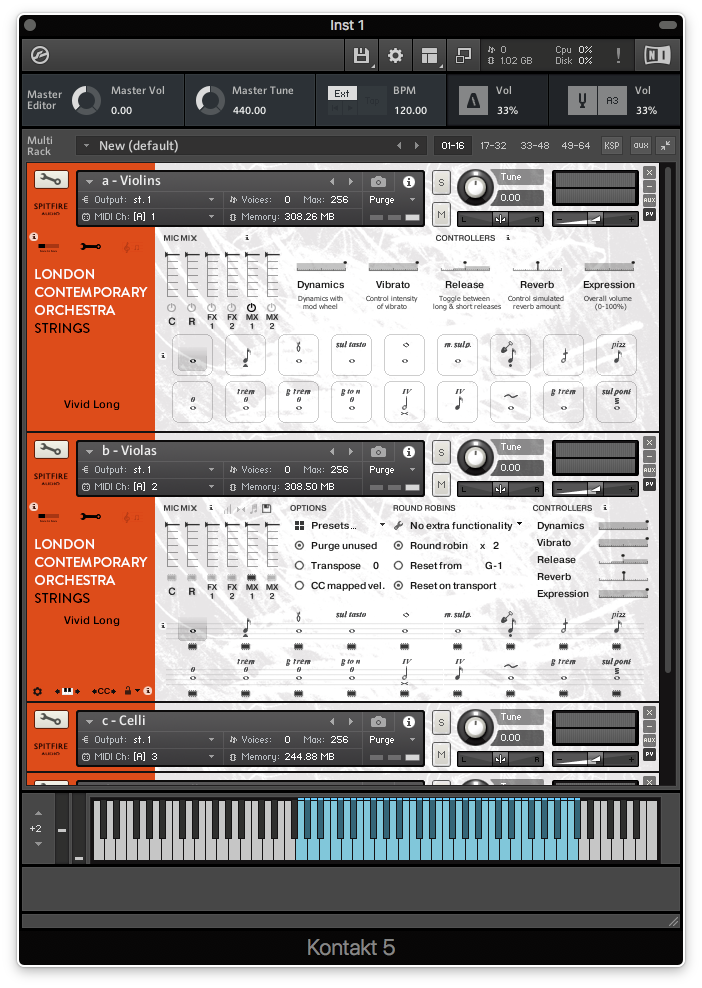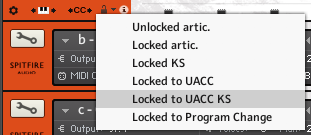Overview
The LCO Strings are a library of sampled strings, dedicated in particular to the most uncommon articulations. This is a chamber ensemble, with six violins, four violas, three cellos and two double basses combined in octaves with cellos. There are no separate basses, because the desired effect is that of a massive sound with the two types of low-pitched instruments interacting.
A screenshot from Kontakt, with the four Instruments collecting most of the available articulations. Some of them, due to player limitations, have been left out, and are only available as separate, or the “Extended” presets.
The library is in Kontakt format, and can also be used with the free Kontakt Player. Individual articulations can be used as stand-alone Instruments, or as single Instruments that gather most of the available articulations. Selection can be done through keyswitches, or through remote MIDI messages, following the UACC mapping (see box).
In addition to the regular articulations, Spitfire provides reduced versions that are gentler on the processor or require less RAM. One can therefore work with minimal resources, and only switch to the complete sounds later.
Spitfire is gradually transferring their libraries to their new Spitfire Audio Player. It is not at all unlikely that sooner or later this library will also abandon Kontakt, and moves on to the new player. The current version, as it is happening with the libraries that have already undergone this transition, will continue to work anyway.
UACC
With the many articulations now gathered in the various sound libraries, some system is needed to place their position in a map valid for all the libraries. The one offered by Spitfire Audio is the UACC (Universal Articulation Controller Channel). Each articulation matches a generic definition (Long Generic, Alternative, Octave, Soft, Hard… and then Short Generic, Alternative, Soft, Hard…), a definition that is translated into its own dialect by each library.
Selection is made through Control Change # 32. Each controller value corresponds to a position on the map. One can therefore have at most 128 positions – and consequently articulations. Selection messages can be assigned to any physical control (including the music keyboard). In the Spitfire libraries, multiple Instruments can be combined into a Multi, and be selected from the same combined UACC map.
